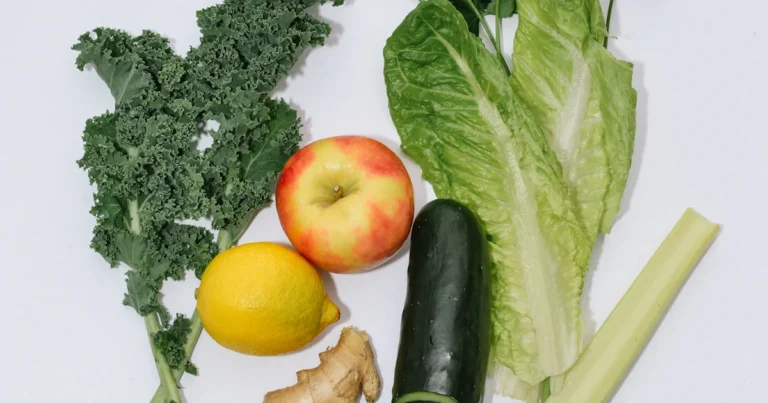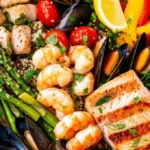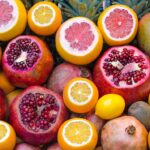Support our educational content for free when you buy through links on our site. Learn more
Do They Eat Eggs in Blue Zones? 🥚 Secrets from Longevity Experts (2025)
Ever wondered if the world’s longest-living people start their day with a sunny-side-up or skip eggs altogether? The Blue Zones—those magical pockets around the globe where people routinely live past 100—have inspired countless diets and lifestyle trends. But when it comes to eggs, the answer isn’t as simple as you might think. Are eggs a longevity superfood, a guilty pleasure, or somewhere in between?
In this deep dive, our Flexitarian Diet™ team unpacks the truth about egg consumption in Blue Zones. We’ll crack open the dietary habits of Okinawans, Sardinians, Ikarians, Nicoyans, and Loma Linda Adventists to reveal how eggs fit into their mostly plant-based, whole-food lifestyles. Plus, we’ll share expert tips on how you can flexibly incorporate eggs and other Blue Zone staples into your own diet for vibrant health and longevity. Ready to discover the egg-citing secrets behind these centenarian communities? Let’s get cracking!
Key Takeaways
- Eggs are consumed in moderation in Blue Zones, with Okinawans eating them more frequently (1-2 times daily), while others enjoy eggs sparingly.
- The Blue Zone diet is predominantly plant-based, emphasizing beans, whole grains, nuts, vegetables, and healthy fats like olive oil.
- Animal products, including eggs, fish, and meat, are used thoughtfully and sparingly, supporting longevity and reducing chronic disease risk.
- Adopting Blue Zone principles means focusing on whole, minimally processed foods and balancing flexibility with tradition.
- For a taste of Blue Zone living, explore extra virgin olive oil, whole grain sourdough bread, nuts, and beans as dietary staples.
👉 Shop Blue Zone Essentials:
- Extra Virgin Olive Oil: Amazon | California Olive Ranch Official Website
- Whole Grain Sourdough Bread: Amazon
- Nuts Variety Packs: Amazon | Blue Diamond Official Website
- Beans and Legumes: Amazon | Goya Official Website
Dive in and discover how a simple egg fits into the extraordinary diets of the world’s healthiest elders!
Table of Contents
- ⚡️ Quick Tips and Facts: Eggs and the Blue Zones Unscrambled!
- 🗺️ Unveiling the Blue Zones: Where Longevity Lives
- 🥚 Do They Really Eat Eggs in Blue Zones? Cracking the Code!
- 🌿 Beyond the Egg Carton: The Broader Blue Zone Eating Philosophy
- The Plant-Powered Plate: Why Plants Reign Supreme for Healthy Aging 🥦
- Beans, Glorious Beans: The Longevity Legume! 🫘
- Fish: A Frequented Friend, Not a Daily Driver 🐟
- Meat: A Rare Treat, Not a Mainstay in Blue Zone Diets 🥩
- Dairy: A Curious Case in the Blue Zones 🥛
- Bread: The Sourdough Secret and Wholesome Grains 🍞
- Sweet Surrender: Taming the Sugar Beast for Longevity 🍬
- Nuts and Seeds: The Mighty Munchies for a Longer Life 🌰
- Hydration Habits: Water, Wine, and Wisdom for Well-being 🍷💧
- 🌱 Adopting Blue Zone Principles for Your Flexitarian Life
- Conclusion: Your Path to a Longer, Healthier Life Starts Now!
- Recommended Links
- FAQ: Your Blue Zone Diet Questions Answered
- Reference Links
Body
⚡️ Quick Tips and Facts: Eggs and the Blue Zones Unscrambled!
Here at Flexitarian Diet™, we get this question all the time: “Do people in the world’s healthiest, longest-living communities—the Blue Zones—eat eggs?” You’re probably picturing a wise centenarian in a sun-drenched village enjoying a daily omelet. The truth, like
Conclusion: Your Path to a Longer, Healthier Life Starts Now! 🎉
So, do they eat eggs in Blue Zones? The answer is a nuanced YES—but with moderation and context. Our deep dive reveals that eggs are indeed part of the Blue Zones dietary landscape, but they’re not the star of the show. In places like Okinawa, eggs may appear more regularly (about 1-2 times daily), often as a simple breakfast staple. Meanwhile, Sardinians and other Blue Zone populations enjoy eggs more sparingly, often on special occasions or a few times per week.
Why the moderation? Because the Blue Zones emphasize a predominantly plant-based diet rich in beans, whole grains, nuts, vegetables, and fruits, with animal products—including eggs—used thoughtfully and sparingly. This balance supports longevity, reduces chronic disease risk, and promotes vibrant health.
Our Flexitarian Diet™ team champions this approach: embrace mostly plant-based meals, enjoy eggs and other animal products in moderation, and savor the rich variety of whole foods that Blue Zones celebrate. It’s not about perfection but sustainable, joyful eating that nourishes your body and soul.
Curious about how to bring these principles into your kitchen? Check out our Blue Zone Diet guide for practical tips and recipes that blend tradition with modern flexitarian flair.
Recommended Links
Ready to start your Blue Zone-inspired journey? Here are some top picks to get you cooking and eating like a longevity pro:
-
The Blue Zones Kitchen Cookbook (100 recipes from the world’s longest-lived people)
Amazon -
Extra Virgin Olive Oil — A cornerstone of Blue Zone cooking
- California Olive Ranch Extra Virgin Olive Oil: Amazon | Brand Official
-
Organic Whole Grain Sourdough Bread — For that authentic Blue Zone bread experience
- San Francisco Sourdough Bread: Amazon | Local bakeries recommended
-
Nuts and Seeds Variety Packs — Snack like a Blue Zone local
- Blue Diamond Almonds Variety Pack: Amazon | Blue Diamond Official
-
Beans and Legumes — The longevity legume staples
- Goya Beans Variety Pack: Amazon | Goya Official
FAQ: Your Blue Zone Diet Questions Answered 🥚🌿
What types of food are commonly consumed in Blue Zones?
Blue Zones diets are predominantly plant-based, featuring a bounty of beans, legumes, whole grains, leafy greens, nuts, fruits, and healthy fats like extra virgin olive oil. Animal products such as fish, eggs, and meat are consumed sparingly and in small portions. The emphasis is on whole, minimally processed foods that nourish the body and support longevity.
Read more about “What 12 Fruits Do Blue Zones Eat for Lasting Longevity? 🍇 (2025)”
Are eggs a part of the traditional Okinawan diet, a known Blue Zone?
Yes! Okinawans are somewhat unique among Blue Zones in that they consume about 1-2 eggs per day, often as a simple breakfast. However, their overall diet remains heavily plant-based, and eggs complement rather than dominate their meals. This moderate egg consumption aligns with their exceptional health and longevity.
Do people in Blue Zones follow a strict vegetarian diet or do they eat some animal products?
People in Blue Zones do not follow strict vegetarianism. Instead, they practice a mostly plant-based diet with occasional animal products. Meat is typically eaten no more than twice a week, often as a flavor enhancer or side dish rather than the main course. Fish and eggs appear more frequently but still in moderation. This flexible approach supports nutrient diversity and cultural traditions.
How do the dietary habits of people in Blue Zones contribute to their longevity and health?
The Blue Zones diets provide high fiber, antioxidants, vitamins, minerals, and healthy fats, all of which reduce inflammation and oxidative stress—key drivers of aging and chronic disease. The limited intake of processed foods, added sugars, and red meat further protects cardiovascular and metabolic health. Combined with lifestyle factors like physical activity and social connection, these dietary habits create a powerful recipe for longevity.
What role do plant-based foods play in the diets of those living in Blue Zones?
Plant-based foods are the foundation of Blue Zones diets. Beans and legumes are especially important, eaten daily to provide protein, fiber, and micronutrients. Leafy greens and colorful vegetables supply antioxidants and vitamins. Nuts offer healthy fats and support heart health. This plant-forward approach fuels the body with nutrient-dense, low-calorie foods that promote healthy aging.
Can adopting a mostly vegetarian diet, like those found in Blue Zones, improve overall health and wellbeing?
Absolutely! Research consistently shows that mostly vegetarian diets rich in whole plant foods are linked to lower risks of heart disease, diabetes, obesity, and certain cancers. They also support healthy weight, gut health, and mental wellbeing. Adopting Blue Zone principles can be a delicious and sustainable way to boost your health.
Are there any specific nutritional differences between the diets of people in different Blue Zones around the world?
Yes, there are regional variations reflecting local cultures and food availability. For example:
- Okinawans consume more sweet potatoes and soy products, with moderate egg intake.
- Sardinians enjoy sheep’s milk cheese and occasional meat, with eggs eaten mostly on special occasions.
- Nicoyans in Costa Rica emphasize beans, corn, and tropical fruits.
- Ikarians in Greece consume olive oil liberally and eat fermented dairy.
- Loma Linda Adventists in California often follow a vegetarian or vegan diet with occasional eggs and dairy.
Despite these differences, the core principles of plant-based eating, moderation, and whole foods remain consistent.
Reference Links
For further reading and verification, check out these reputable sources:
- Blue Zones Diet: Food Secrets of the World’s Longest-Lived People | BlueZones.com
- 13 Foods to Eat or Avoid on the Blue Zone Diet | Verywell Health
- Live Longer, Healthier | Field Doctor
- Flexitarian Diet™ Blue Zone Diet Guide
- California Olive Ranch Official Website
- Blue Diamond Almonds Official Website
- Goya Foods Official Website
We hope this deep dive cracked the Blue Zones egg mystery wide open for you! Ready to flex your flexitarian muscles and savor the longevity lifestyle? We’re cheering you on every step of the way. 🥳🌱







